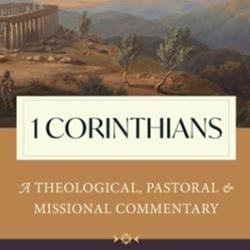From the lips of Lazarus . . .
Living after you have died is strange.
You appreciate life like never before. Martha’s lentil soup never tasted so good. Even the capers, which I had never relished, were suddenly exquisite.
It had been months since Jesus brought me back to the realm of the living. And as was His custom, the Teacher visited us once again on His way to Jerusalem.
We did not know it at the time, but this visit would mark the last week of His earthly life. That entire week, He would visit the holy city in the day and retreat in the evening to our home, where He and His disciples lodged overnight.
When we received word that Jesus was coming, my father decided to host a private dinner party to celebrate my resurrection. Jesus would be the guest of honor.
As usual, Martha served as hostess and Mary assisted. Before the banquet began, Martha insisted that I sit next to Jesus, which I gladly did. My father sat at the head of the table with Jesus at his right hand in the place of honor.
Our house was packed to the brim that evening. Voices rose to the roof. Bright colors of clothing dotted the public room. Some of our closest friends were present, including relatives from Bethany and Jerusalem. It was a reunion of everyone we held dear.
The dinner party was held six days before Passover. And Jesus brought all of His disciples.
“Welcome!” my father boomed, greeting each person as they arrived. His eyes brightened with excitement. “You know my daughters, and you are in for a real feast tonight!” Jesus complimented Martha’s cooking as usual. “Your flatbread has no rival, Martha,” said the Teacher.
Martha and Mary prepared an elaborate feast. A large plate of mixed meats was placed on the table. Another plate featured assorted vegetables with fish, turnips, beans, and a delicious brine sauce. Aged wine was also served.
We arranged two clusters of three couches around the table. Jesus, my father, some of the Teacher’s disciples, and
I reclined around the low table, propping ourselves on cushions.
The rest of the party sat on stools and benches in the open space in front of the table. We all ate together, and Martha served. Jesus was more solemn than usual that night. I kept watching Him while we ate, and He seemed to be deep in thought much of the time. His mouth pulled downward.
Near the end of the meal, I caught a whiff of an exotic scent. Others could smell it too, but none of us knew from where it came.
With dramatic suddenness, I looked down and saw my sister Mary kneeling at Jesus’ feet. She snapped the narrow neck of a flask containing nard from India. The nard was an enormously expensive fragrance, worth the financial equivalent of three hundred days of labor.
Before her passing, my mother gave the nard to Mary as a gift. Mary was only seven years old then. One pound of the exotic perfume was sealed in a beautiful flask of alabaster.
Candlelight flickered over the white jar. I was shocked because this was Mary’s future security. The house fell silent as we fixed our gaze on Mary. What was she doing at Jesus’ feet?
After breaking the fragile seal, Mary poured the nard on the Teacher’s head. She did so liberally and profusely. So much so that it ran down His beard, droplets beading down over the fine hairs.
She removed His sandals and poured the rest of the nard on His feet, anointing them with it. She wiped them with her long black hair.
The immaculate head that would soon wear a crown of thorns was first crowned with the exquisite scent of my sister’s perfume. Mary’s flask of alabaster was the tangible token of the thankful outpouring and willing surrender of her heart.
The nard was, very simply, the most treasured possession she owned.
Mary had saved the nard for years. But the hour ripened for her to use it in a way that no mortal could predict. I watched Jesus and a subtle smile streamed across His face. The fragrant beauty of Mary’s act touched Him with quiet joy.
The Lord who had wept with my sisters at my tomb now rejoiced with us at our table. The scent of the perfume, now completely exhausted on the Teacher, silently flooded the room. The pleasant aroma matched the spiritual fragrance of my sister’s act. And it left an indelible mark upon all of us.
Especially Jesus.
Martha looked on with mild surprise. I saw tears running down her face as Mary anointed Jesus with the perfume.
At that moment, it dawned on me how much Martha had changed. She was still serving, but not anxiously. She was still hospitable, but no longer distracted. But even more than this, she had begun to understand the love that our sister had for the Teacher. And she affirmed it in her actions.
The sight of Mary unbinding her hair arrested the room. To those who did not understand what she was doing, it was a scandal. Some of our relatives glowered at her. Others recoiled in horror. Embarrassment was written on the faces of some of the Teacher’s disciples.
But to those who understood Mary, it was an act of extravagant love.
I glanced over at John. His eyes welled up with tears. The other disciples seemed irritated. A few of them turned their heads.
I have no words to adequately describe the sweetness of Mary’s act that day. I knew my sister well, and she was motivated by the ardent love she had for the Teacher. It was a visible exhibit of unselfish worship and heartfelt devotion, a supreme tribute of her pure affection for Him.
None of us realized it at the time, but Mary outshined all the other disciples in her grasp of the Lord’s worth as well as His imminent death.
Somehow she knew that the One who had raised me from the dead would soon take His own place in the tomb.
Years later I would reflect on this incident, remembering how Jesus would often tell us how He would be taken by the Gentiles and led to die. We did not understand what He was speaking about. But my sister, with her sensitive heart, understood.
Weeks before, Jesus had consoled Mary in the hour of her grief. Now she consoled Him in the only way she knew how. She anointed His head with the fragrant balm—the same way kings were anointed.
My father and I looked on with silent wonder and secret awe as Mary performed her beautiful act of devotion upon the Teacher. Neither Jesus nor Mary spoke any words.
We quickly realized, however, that some of the Teacher’s disciples did not have the same opinion. Judas leveled a cold-hearted censure on my sister’s act of worship:
“To what purpose was this waste? It could have been sold and given to the poor!” he chided.
I could hear some of the other disciples bristling in agreement with Judas’ cutting criticism. They seemed infuriated. Mary’s beautiful offering had been grossly misjudged. When Judas finished, there was silence. Mary did not register an emotion. Her expression remained the same—her eyes still downcast.
Then, with quiet dignity, Jesus upbraided them all, saying, “Leave her alone! Why are you troubling her? She has performed a good deed for Me.”
Jesus paused. He looked at Mary and continued, “She has saved this perfume for the day of My burial. The poor will always be with you, and you can help them whenever you desire. But you won’t always have Me. I tell you the truth, wherever in the world this gospel is proclaimed, what she has done today will also be rehearsed in her memory.”
The Teacher knew exactly what Mary had done. Even beyond what she herself perceived. In light of her beautiful act of worship, Jesus would allow no complaint. He would brook no criticism. Sharply and sternly, He defended my sister, openly rebuking the unjust charge.
Years later John told me that it wasn’t Judas’ care for the poor, but his greed that provoked his criticism that evening. Judas was the treasurer for the disciples, and the love of money had overtaken him.
But Judas’ words betrayed him. He was a man with a cold heart and a closed hand. He did not recognize the worth of the Teacher, nor did he pay allegiance to Him.
His was the bitter complaint of a hypocrite. Yet my sister’s stunning act brought joy to the heart of the Savior. Even so, I could tell by her sad demeanor that Judas’ remark cut her to the quick. But as was fitting for her character, Mary uttered no word in defense.
I was relieved when Jesus defended her. And I was honored when He said that her good deed would be remembered wherever the gospel would be proclaimed. Shortly after Jesus finished speaking, a large crowd from Jerusalem arrived at our home. They heard that Jesus was visiting us, and they wanted to see Him (and me, whom He raised from the dead).
Our home smelled of the fragrance for days. When Mary poured the perfume upon the Teacher, some of it splashed on the table. And it even left a stain.
In the days to come, many of the Jews in Jerusalem believed in the Teacher because of the seismic miracle He performed on me.
But the chief priests, led by Caiaphas, were so threatened that they hatched a plot to put me to death. I was a living witness to the resurrection power of Jesus. The priests feared that if the Jews began believing in Him in larger numbers, the Romans would remove their established place in the city. So they wanted me dead to protect their real estate.
My sisters and I scrambled to gather my belongings and pack them up. Under the cloak of darkness, I left Bethany in hiding. I went to Bethsaida in Galilee and stayed with the family of Philip—one of the Teacher’s disciples.
Several weeks later, I received word that the Romans had put Jesus to death outside of Jerusalem, and I quickly made my way home.
The journey was long. The smell of donkey dung on the side of the roads filled my nostrils. My body was covered in gritty dust. Eventually, I rounded the corner, and our house in Bethany glimmered in the afternoon sun.
I staggered to the courtyard. Martha’s hand stilled over her mixing bowl. “Lazarus!” she yelled.
My bags dropped to the floor. The sight of her calloused hands undid me. Tears burned my eyes. “They killed Him,” she said.
I wrapped my arms around her. Our tears dripped to the ground.
In the days that followed, we could still smell the fragrance of Mary’s perfume in the house. And whenever we looked at the stain on the table, we remembered.
We remembered all the times He visited our home and how He broke bread with us.
We remembered how Mary wiped His feet with her hair, anointing Him for His soon-approaching burial.
We remembered the many things He taught us before He visited the holy city one last time.
We remembered … and we wept.
But what happened next was the most surprising of all …
This is an excerpt from God’s Favorite Place on Earth.












